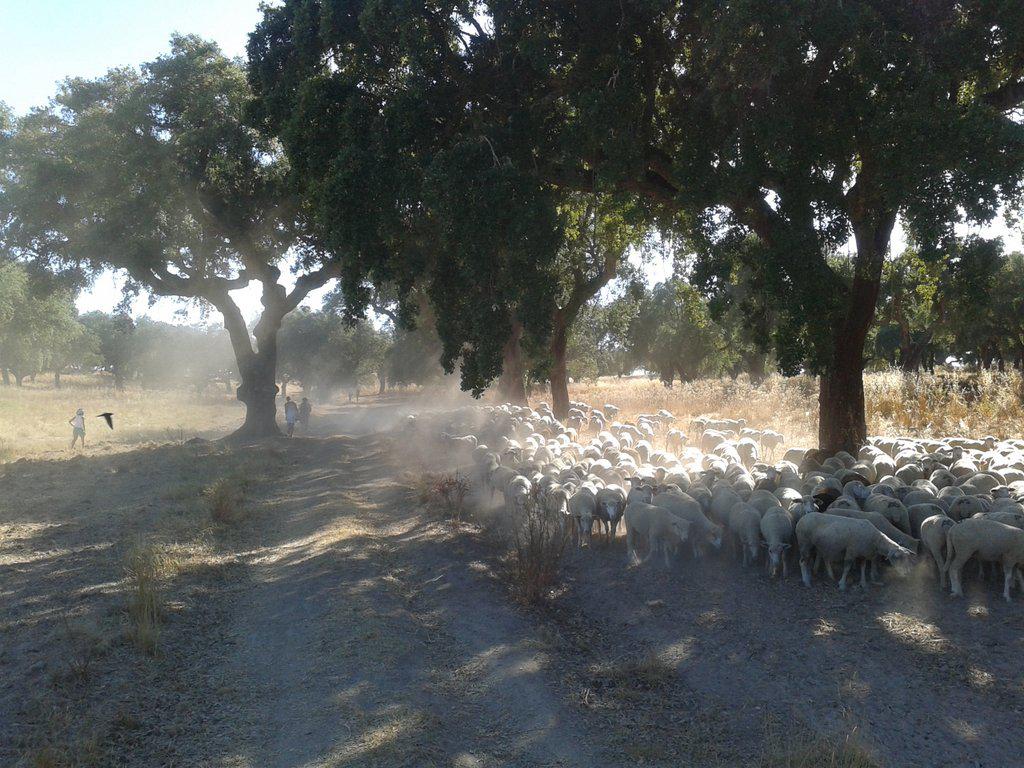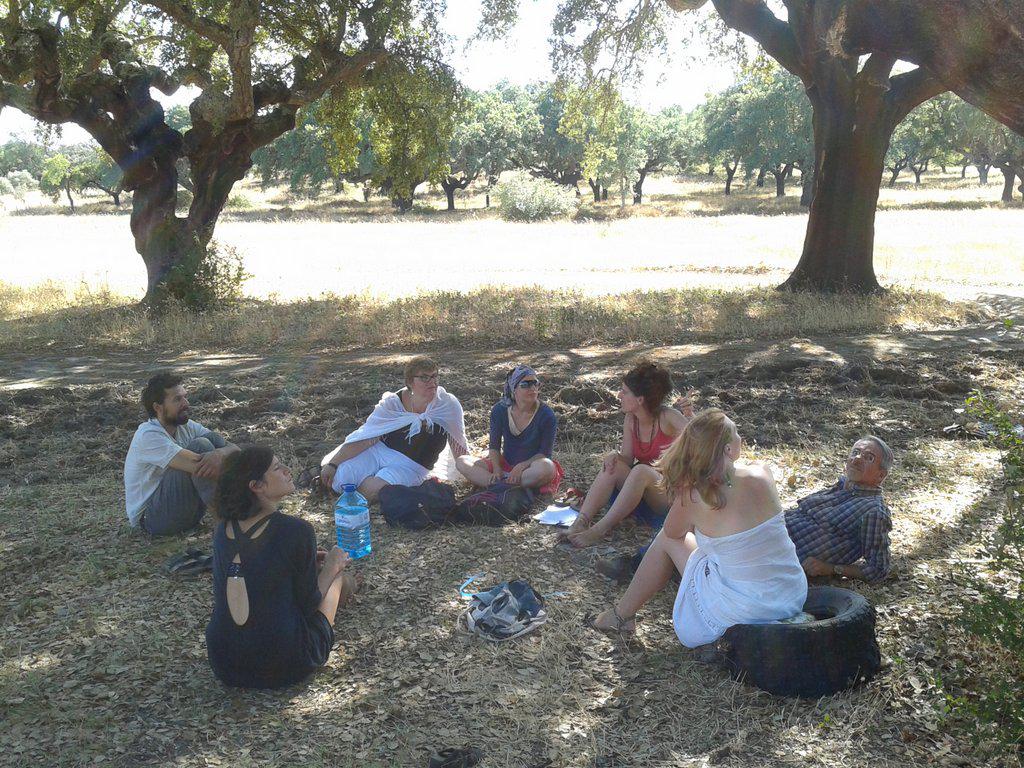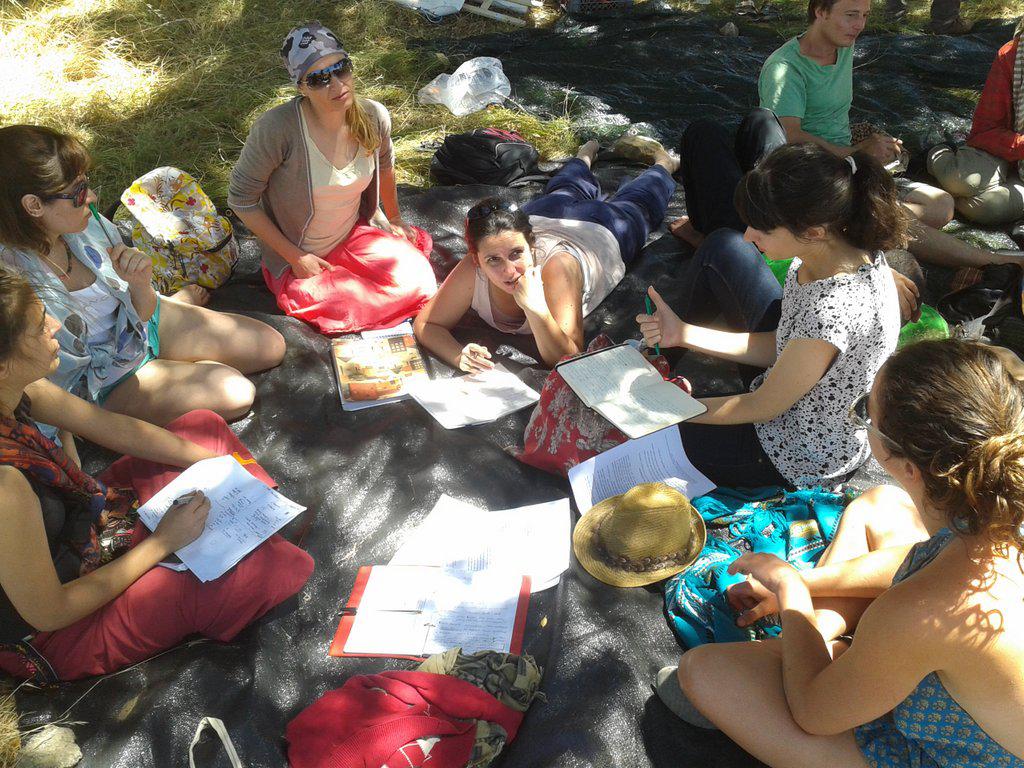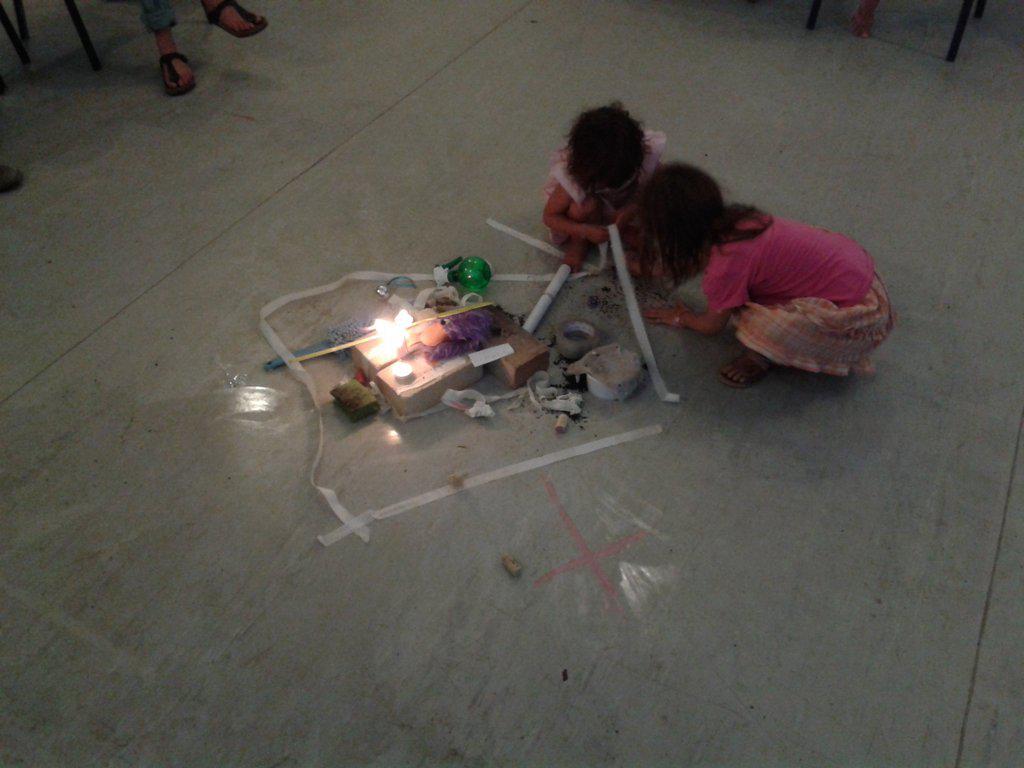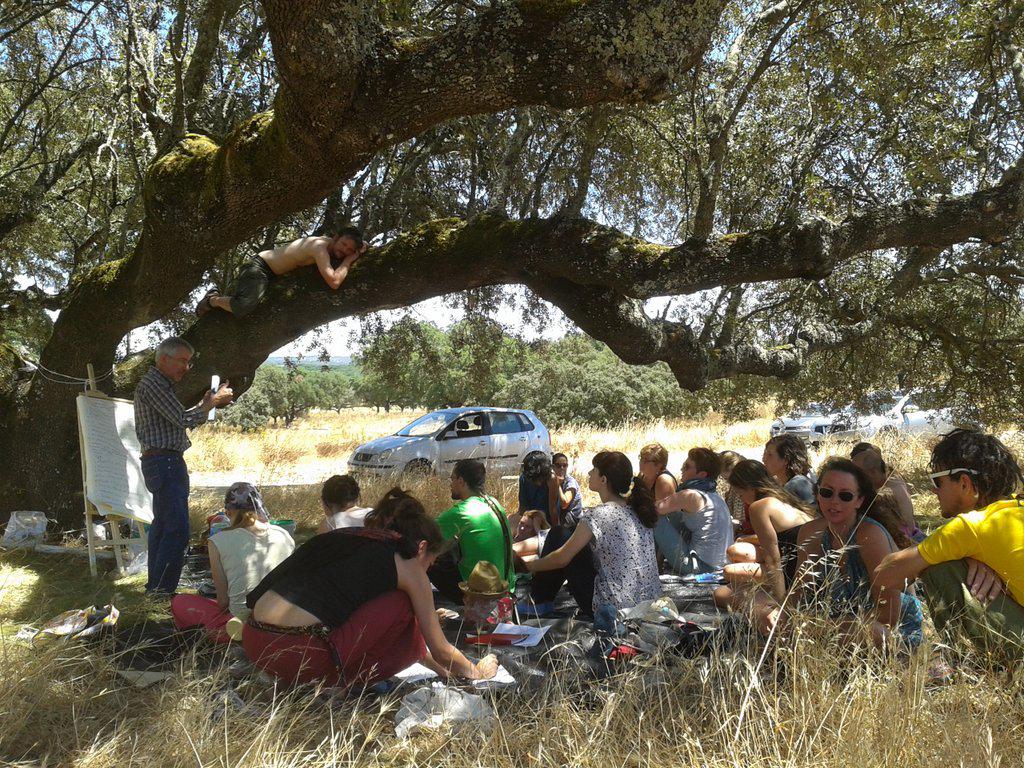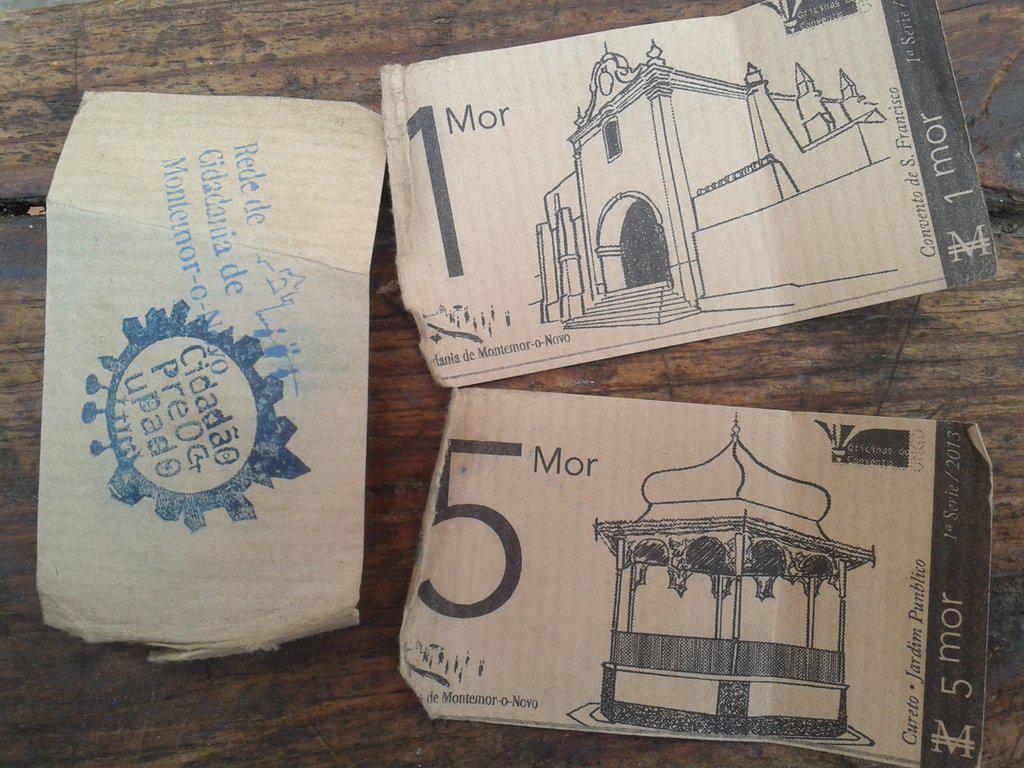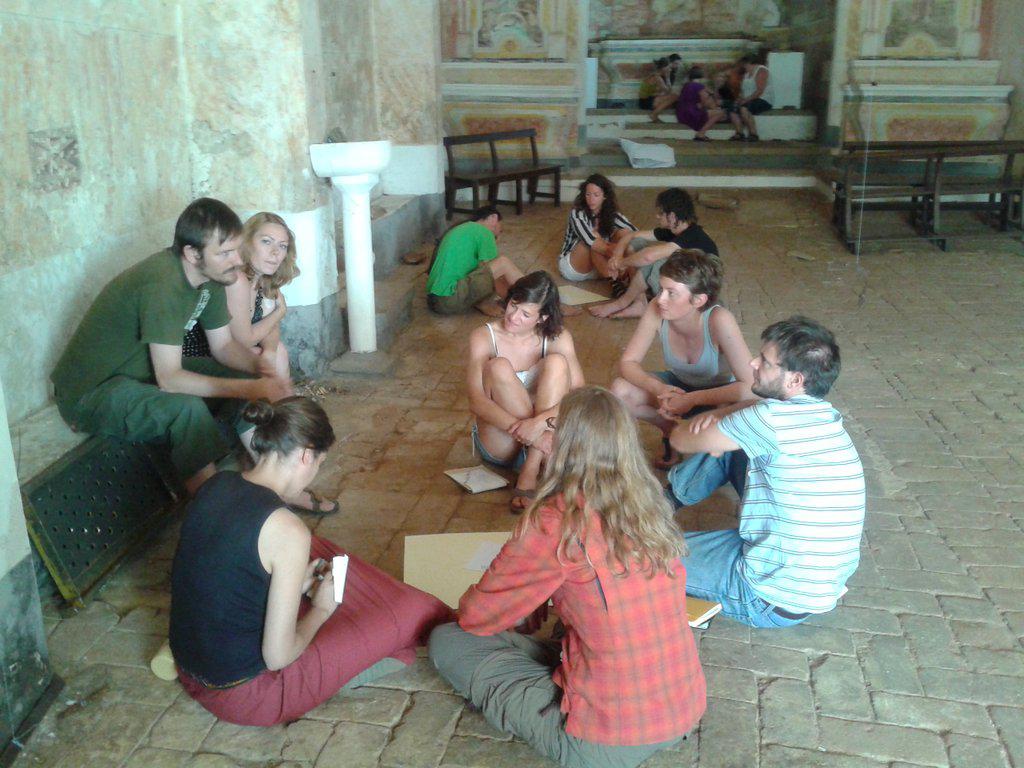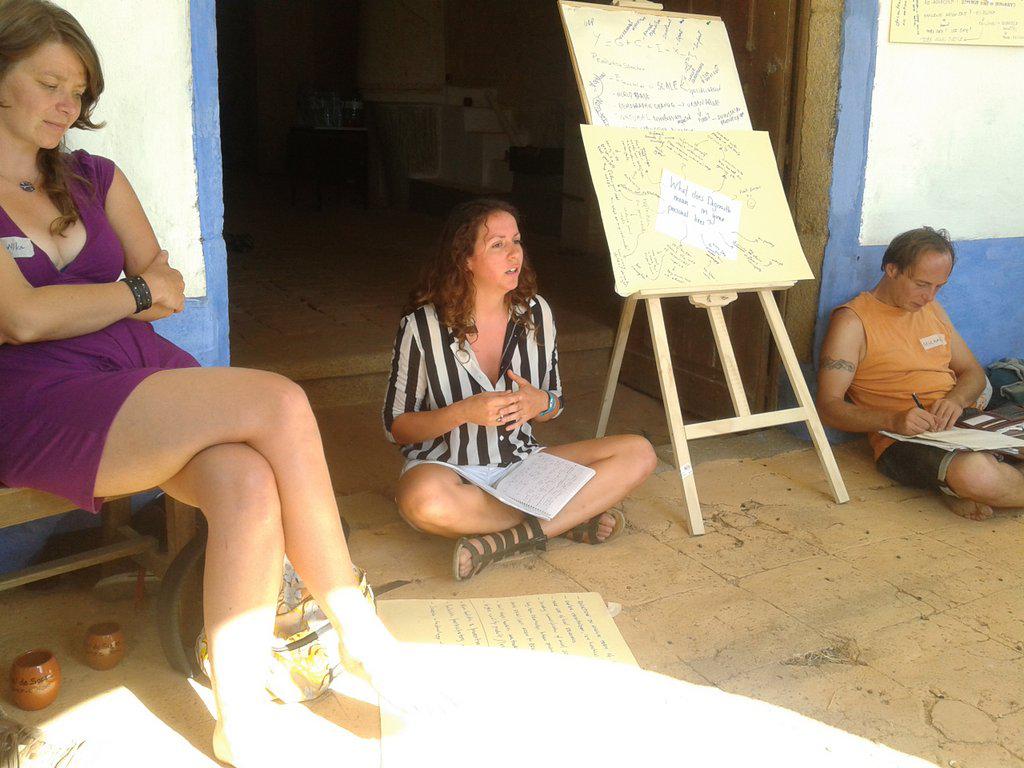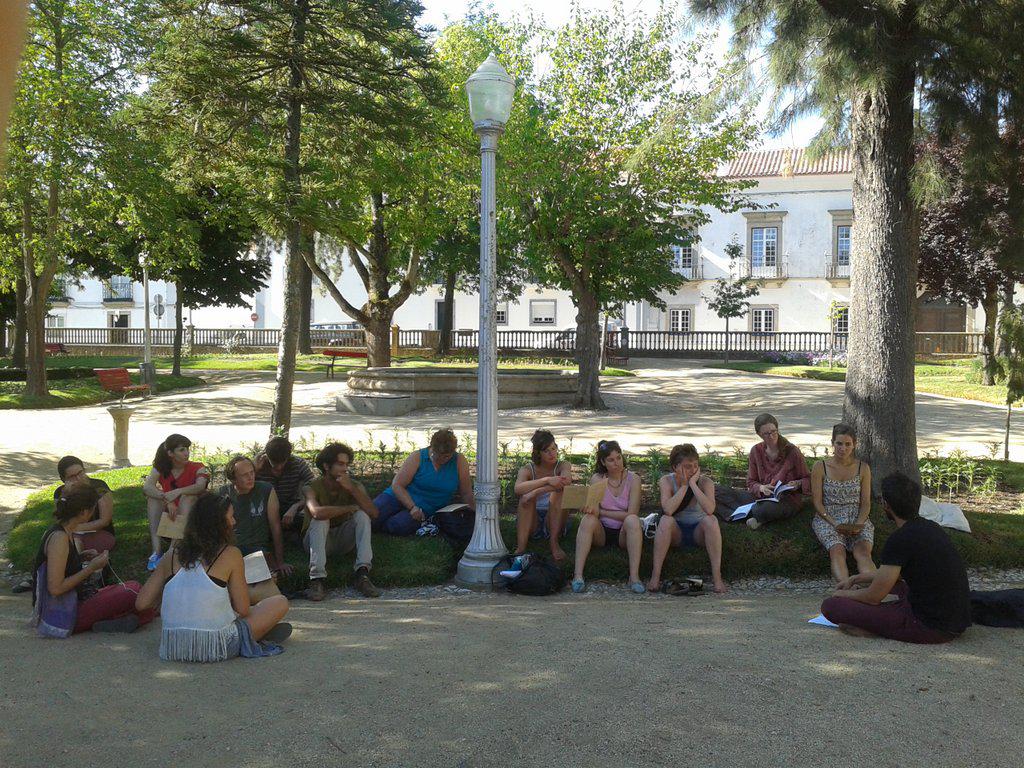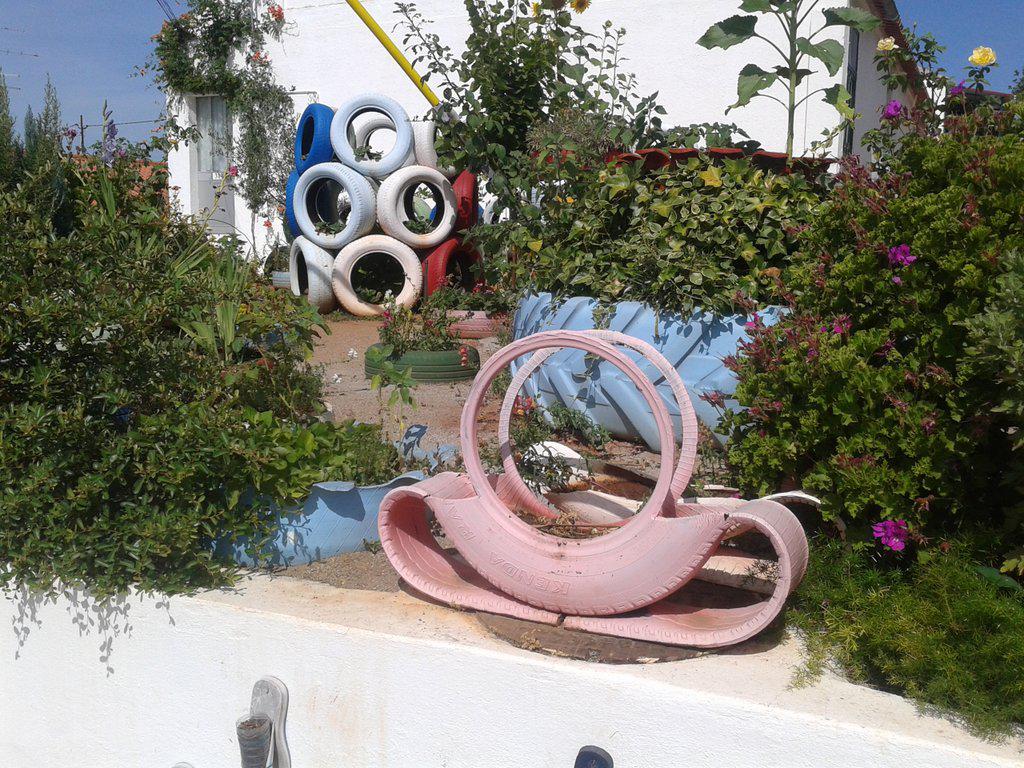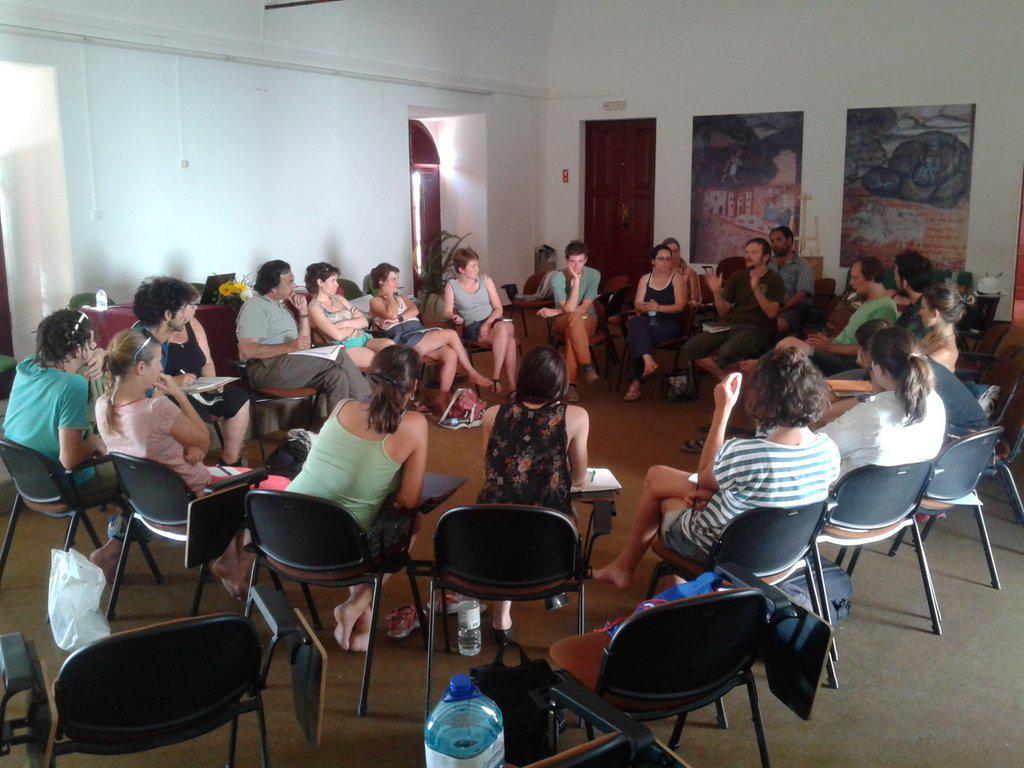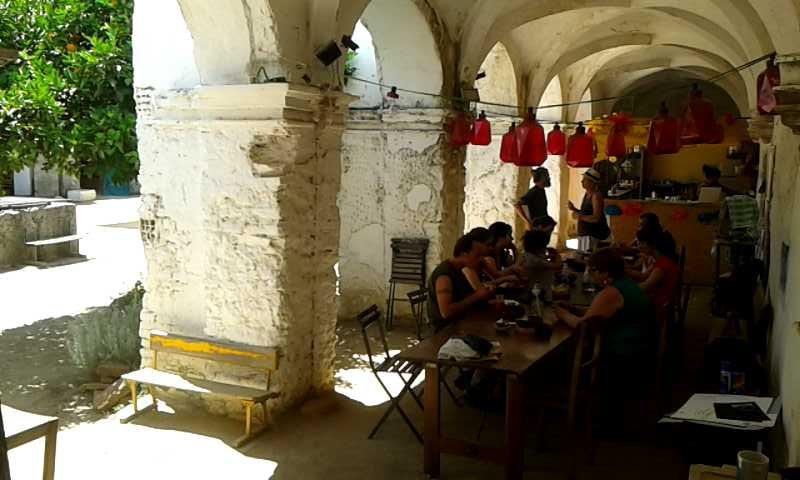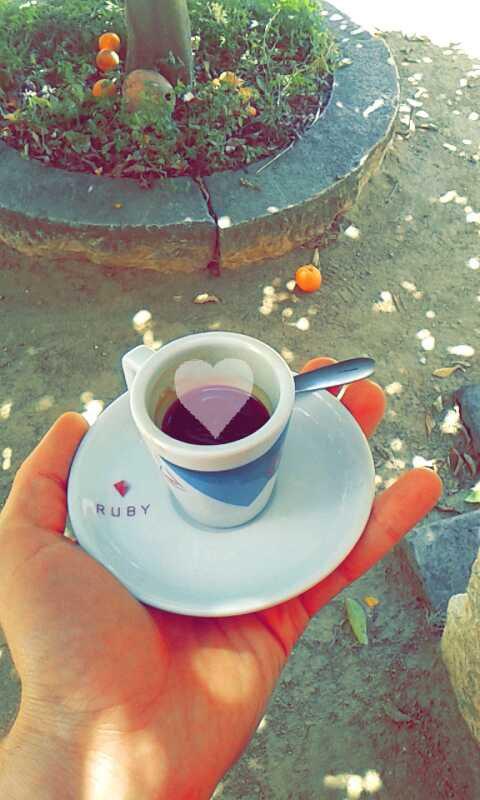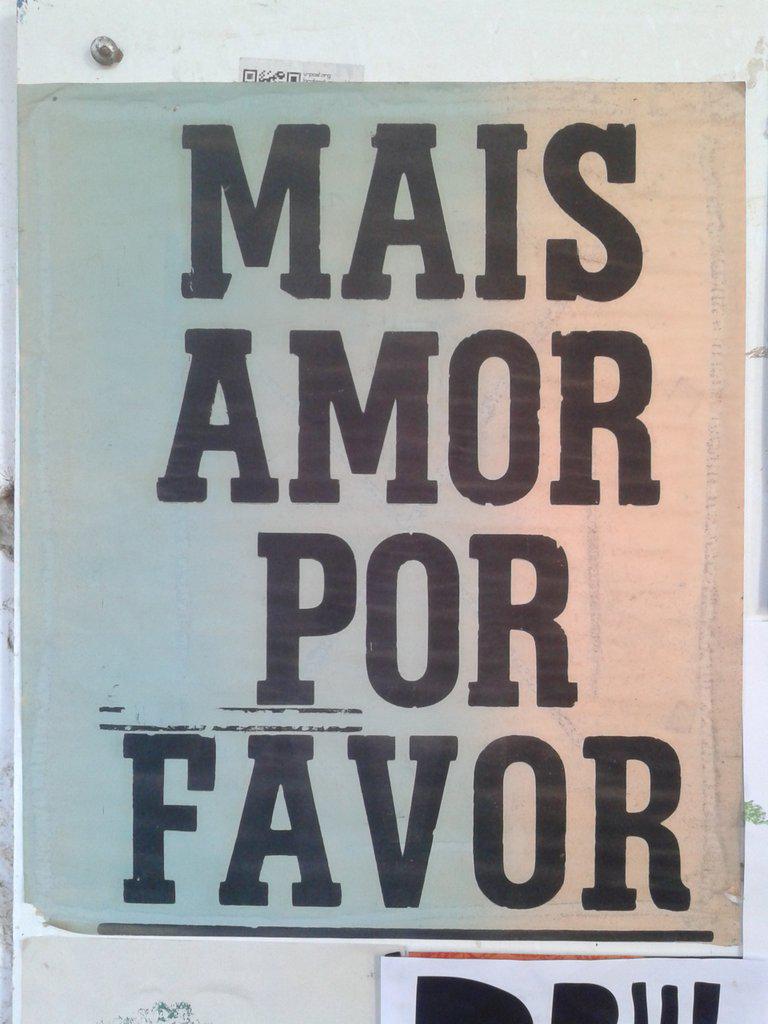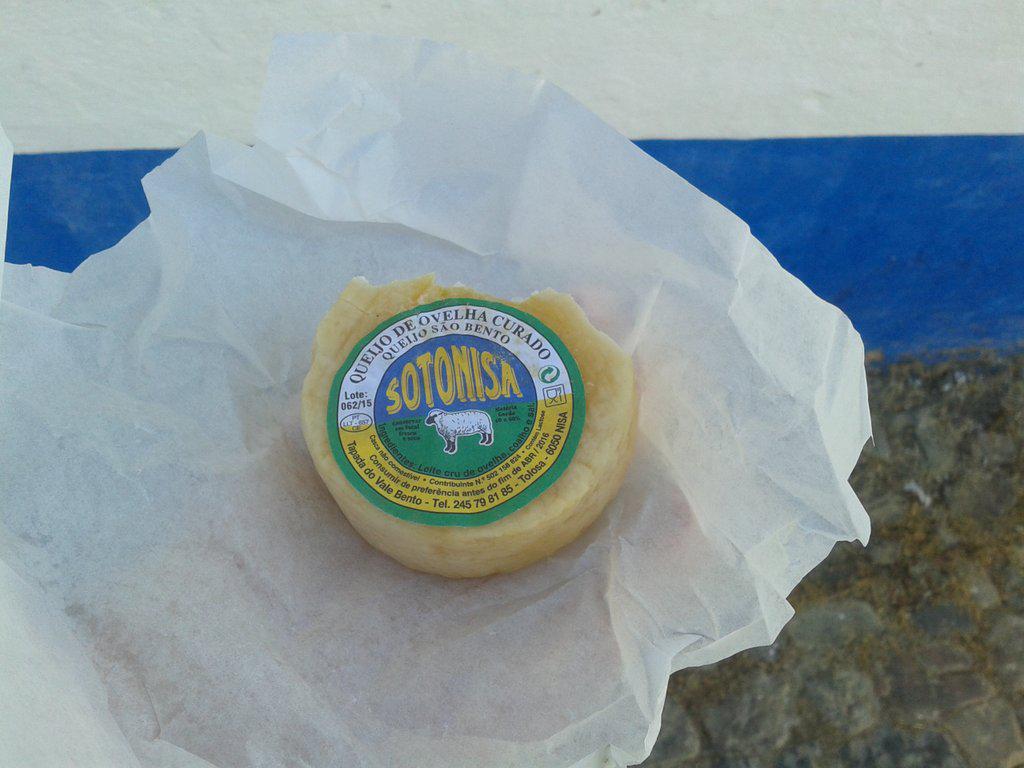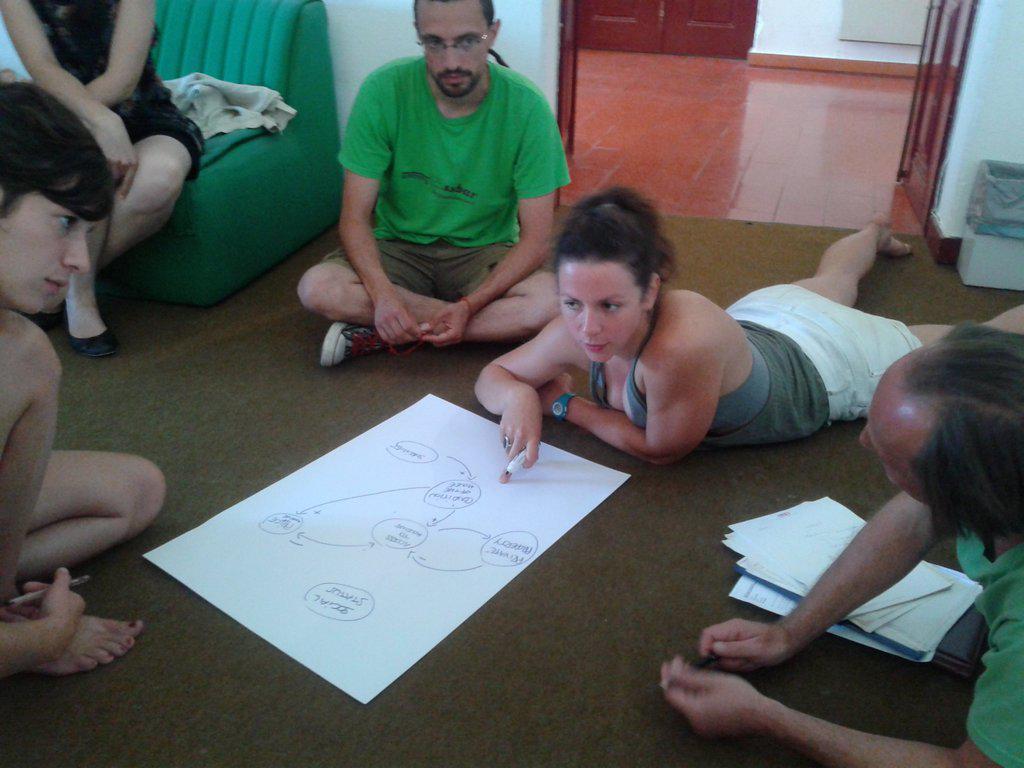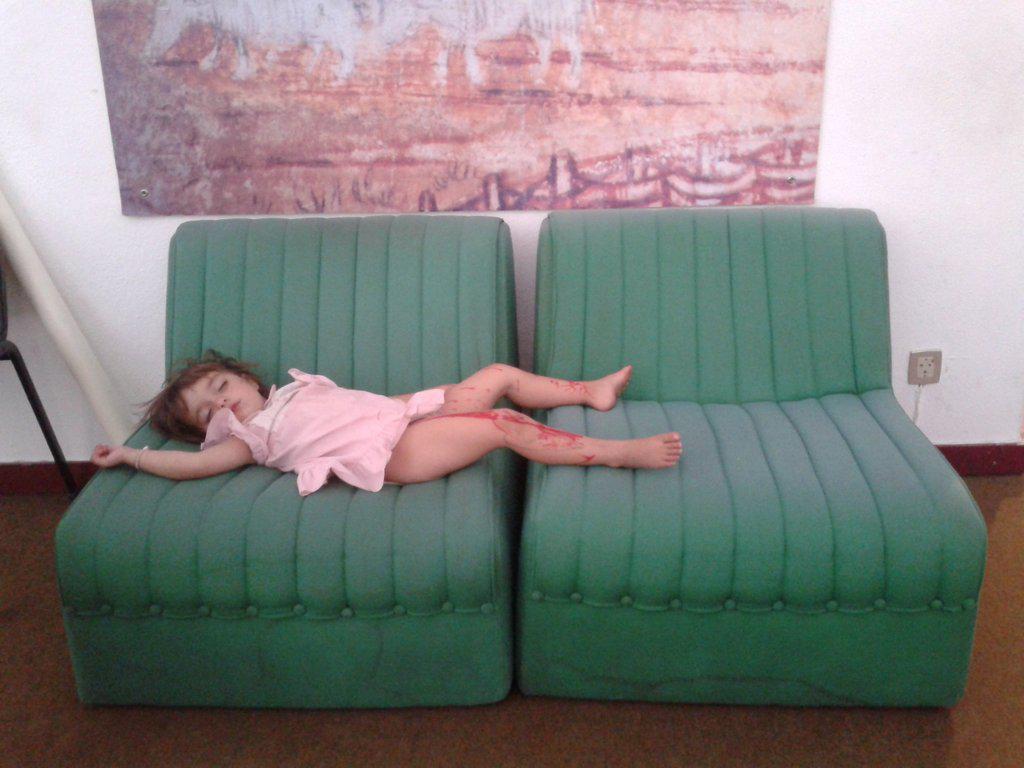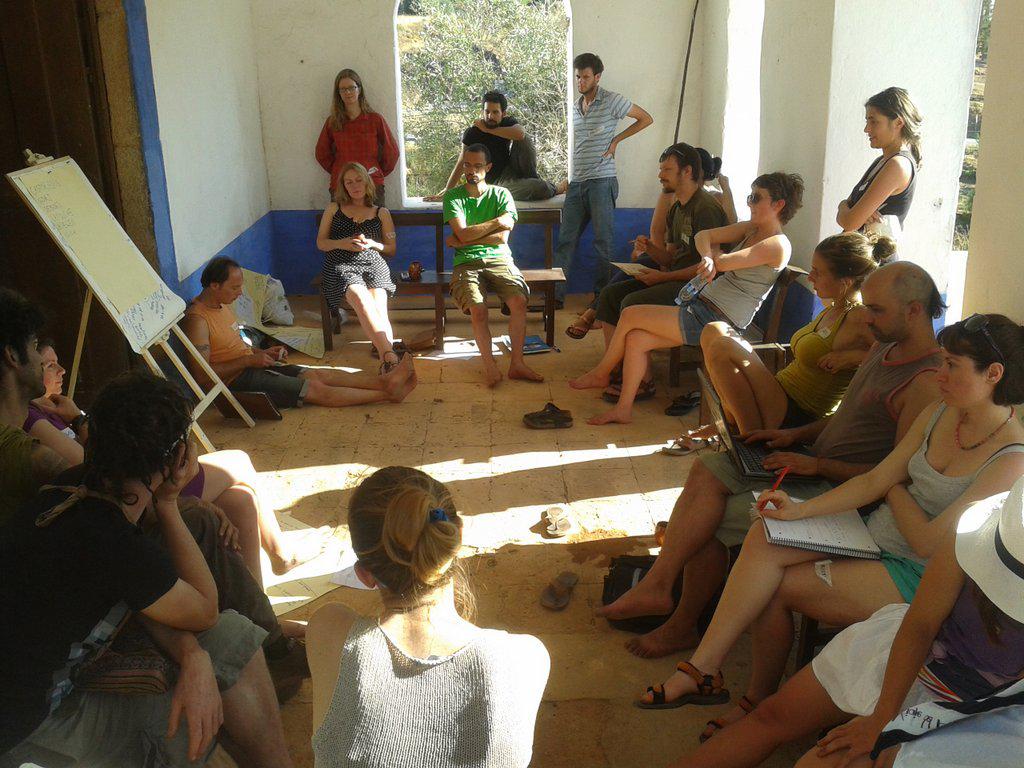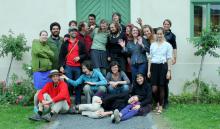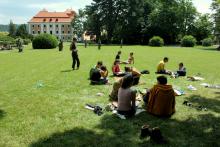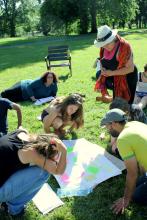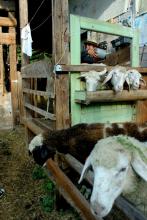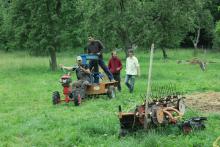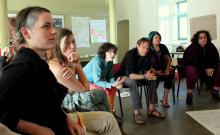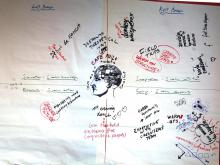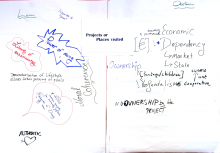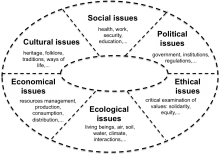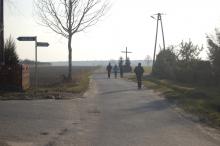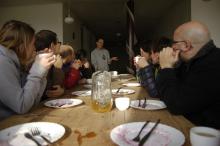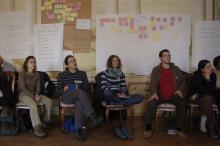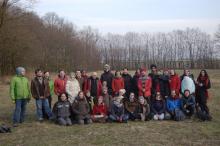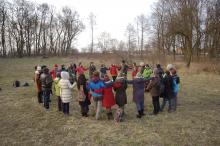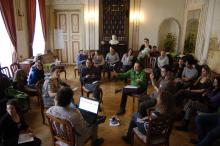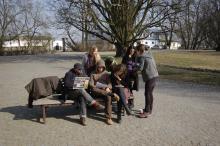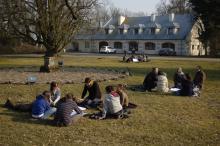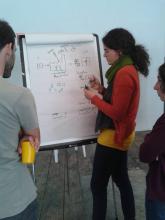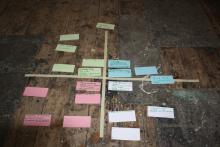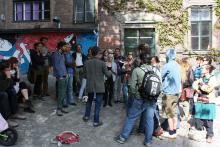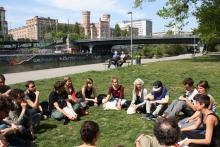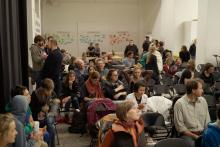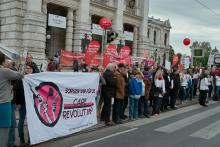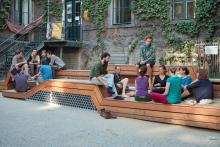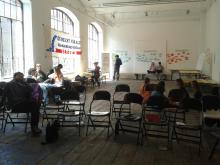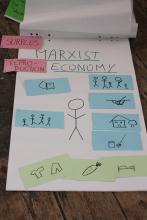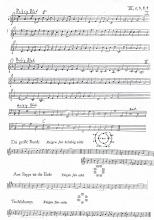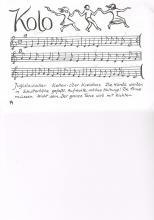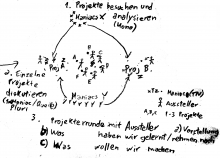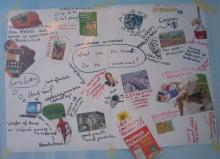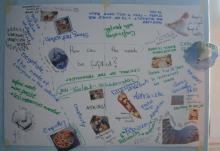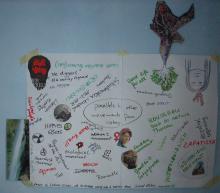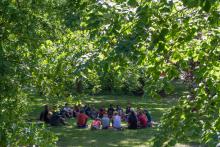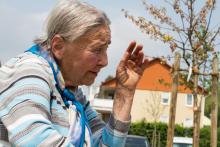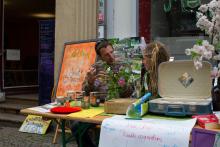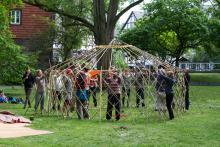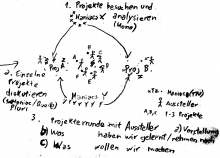Documentation of the Viennese course by Mike, Olivia and Michael
GROWL @ Montemor-o-Novo, Portugal - notes by Wojtek
Tuesday 7/07
www.vivercor.com
- action research by Veronica Conte in local community (Ruinha street) encouraging repainting walls with decoration and adding personal notes for passers-by to read
- research question: “which human needs can you satisfy with these kind of projects?”
- asked participants to bring objects that are important to them, then noted the stories of the objects and confirmed the notes with participants for greater accuracy
- side project - asking people what they would like to do or see done in the community, then painted these requests in a public space (bus stop). this intervention caused pressure on the authorities to live up to the expectations
Oficinas de Convento
- association working since 1998. the space, water and electricity is supplied by the municipality
- in Southern Portugal, after the revolution in 1974 exists policy of supporting local associations by the municipality
- spaces for children, youth and elders offering space, tools, workshops free of charge
- public services in Montemor-o-Novo are very present, people come from other areas to use the infrastructure. impressive library and hospital. low living costs
Wednesday 8/07
Introduction to Degrowth - Noemie
-Levels of Degrowth:
1. individual
2. collective
3. reflection on the project
4. visibility level
- roots in Frankfurt school philosophy
- authors: Gorz, Georgescu-Roegen, Illich, Debord, Latouche, Castoriadis
- The imaginary institution of society (Castoriadis)
heteronomous society - imaginary coming from outside
autonomous society - imaginary created by the people
explicitly democratic society - responsibility for own action
- concept of magma - cannot be represented - society emerges in processes - many societies in every society
Thursday 9/07
Mapping pathways for public relations - Nuno Videira
- tool to map complex problems and loops of interrelations
- systems thinking toolkit
- cause/effect loops
- “Futures 55” paper
P2P - Stacco Troncoso
- p2p - relational dynamic (not a tech term)
- commons = resource
- cognitive capitalism - patent system, brands - innovation fell from 1,5% to 1% since 1980s
- abundant knowledge - artificial scarcity
- material scarcity - artificial abundance
- Facebook 1,44bln users worldwide
- Blockchain - p2p system used in Bitcoin
- open source ecology - eg. Lifetrak tractor
- www.commonstransition.org
Jose Manuel Henriques
- Schumacher “Small is Beautiful”
- resilience, anti-fragility
- Nassim Taleb “Tough times don’t last, tough people do” :)
- “Antifragile: Things That Gain From Disorder” - book by N.T. - how can we win with problems/external shock/turbulence
- crisis (from Greek): “structural change”, “final judgement”, “critical judgement”, “critical intervention” (med) - moment in time to take a decision
- to live “always in crisis” is a concept to make us accept a state of suspension of our values, priorities and accept the unaccepted (policies)
- black swans - unknown future
- markets are self-destructive and depend on states (Keynes)
Friday 10/07
Game AND - Fernanda Eugenio
- the rules are present in our lives from beginning - a kind of debt
- use ethnography to never answer the questions but to keep on stating them
- IS - why/who
- AND - what/how/when/where
- consider this game as a degrowth game for children
- creativity/cooperation game
- www.and-lab.org
Philosophical Soccer - Jorge
- play in pairs or in teams (tournament)
- introduce theme (one word)
- going away from subject is counted as out
- skipping logic is counted as offside
- making a point is score
- 7 minutes per half
- 5 minutes preparation
- uncertainties are resolved by throwing dice
Scenario workshop/ adaptation pathways - Andre Vizinho
- 2 days workshops for 35-40 people, stakeholders in the affected locality to create a plan and strategy for an area that needs acting upon
1. present case study
2. divide into groups working on scenarios
3. introduce 3 scenarios, ask each group to work on a 4th scenario
4. present results of group work / discuss
5. find common grounds among results - consensus
6. feedback round
Saturday 11/07
Health Care Systems - Vitor Ramos
- HCS only 310 years old - industrial era invention
- 4 types of HCS:
1. liberal “market” (USA)
2. Bismarkian (Germany since 1882)
3. Beveridge (UK since 1948)
4. “Shemasko” (USSR, Cuba)
- in Portugal hospitals are public but private managers run them for private profit
- Jose Saramago “Intermittent Death”
- Claude Bernard - homeostasis (static equilibrium)
- homeodynamics (dynamic equilibrium)
- in Bruxelles: Health & Consumerism - these two matters should not be dealt with by the same administrative body
Peter Zin
- how to reach 100% food autonomy
- “ou que ilegal e bom!”
- bulota - edible acorns
- Allen Dereira - documentary on uncontacted tribe - message to western people / “Aluna” documentary
- Roger Penrose - mathematician
- Gabor Mate - psychiatrist working with addiction
- Buckminster Fuller
Growth & Anthropology - Rita Alves
- anthropology = colonial science
- colonialism - central to Europe’s growth and development
- through colonialism Europeans invented “the other” but called it discovering
- “colonialism is violence in it’s natural state” (Fanon)
- country side was less susceptible to the imperial imaginary due to physical distance from the source of imperial ideas
- generalizing “the other” as a monolithic, homogenous group “opposite to us”
- zone of non-being (Fanon)
- by describing the orient you create an ideology towards the orient (Said)
- eurocentric diffusionism (Blaut)
- Paolo Freire - needs of people, agency
- critical whiteness, critical race theory, white privilege
- meritocracy - power relations giving some people privilege over others
- episthemic disobedience (Walter Mignolu)
Sunday 12/07
Feedback round
- moving around was great, making connection with place/topics
- lack of guidance/framing to create continuity
- lack of involving body
- more structure in the sessions - what is the goal, relation to general topic
- people that are not yet involved will not prepare well for the sessions so space is needed for that within the course
An online and printed book consisting of a collection of modules and documentation of the courses happening in 8 different countries on the GROWL project during 2013 and 2015.
Degrowth theoryThis module brings theoretical binding element, enabling core theoretical and empirical knowledge on degrowth, to be articulated with the different contributed thematic modules. It works towards a good understanding and complementarity between all those that wish to promote degrowth learning from its multiple and diversified perspectives. DEVELOPMENT STATUS: In active development | ||
Degrowth and Local Economic Alternatives in the Czech RepublicAuthors: Eva Fraňková*, Nadia Johanisová*, Eva Malířová** Editing, graphics: Nikola Fousková*** & the GROWL team * Department of Environmental Studies, Faculty of Social Studies, Masaryk University, Brno, Czech Republic, http://humenv.fss.muni.cz/english, emails: eva.slunicko@centrum.cz (Eva Fraňková), johaniso@fss.muni.cz (Nadia Johanisová) ** NaZemi (OnEarth), Kounicova… more… | ||
Mental Infrastructures and Degrowth TransformationContentsMental Infrastructures: The Culture of Growth Module 1: Getting to know a concept – What are mental infrastructures of growth? more… | ||
Solidarity and cooperative economyGROWL partner ANTIGONE, in collaboration with ILIOSPOROI Network and the People’s University of Social and Solidarity Economy, organized an international Course on Solidarity and Cooperative Economy, during 1-6 October 2014, in Thessaloniki, Greece. Participants had the opportunity to get trained as trainers on concepts such as degrowth and solidarity - cooperative economy, through theoretical lectures, participatory workshops, interactive showcases, plenary sessions and open space debates. | ||
A training on the social dimension of agroecologyChapter authored by by F. Gillet and M. Terzo, Haute Ecole de Bruxelles, Belgium
Agroecology is in the same time a large panel of techniques (local agriculture, organic-agriculture, permaculture, resilient agriculture ….), a critical look on those techniques with a theoretical reflexion on political, economical, cultural, social, ecological, human … levels and at the end also a philosophy that could be simply summarized as “an art of connecting and balancing agricultural activities and their ecological… more… | ||
Degrowth & Agriculture – Resilient food production and distributionABOUT THE COURSE: The focus of our course was to explore the relation between degrowth and agriculture. Starting with an introduction to the current state of things - the ever-expanding industrial agriculture, then field visits to farms in the region, and finally a critical analysis of existing alternatives. To achieve this the course had to happen as close as possible to our area of interest and away from the city. We wanted the participants to experience a part of the Masovian country-side. Not a select group of organic farms and engaged activist-farmers but the…more… | ||
Work in a solidary degrowth society
Why „work“?What is work? In our present society work is very strongly associated with wage labor or employment. Work is what somebody agrees to pay you for. But is this so? What is with all the activities that are essential for the well being of all. Why is are activities sometimes paid for and sometimes not? Care? Education? Cooking? Love? Friendship? Nature? Some activities that are labled as work (and well paid) seem to be meaningless, even socially or environmentally destructive. Why is this so and who decides about this this? These questions,… more… | ||
Course documentation Witzenhausen for GROWL Book | ||
Degrowth Public PoliciesContents 1. Introduction 2. Context: Why Degrowth Public Policies? 2.1 Roles 2.2 Instruments 2.3 Principles 2.4 The Other 2.5 Decision Making Processes 3. Final Remarks: Descaling public policies?
IntroductionDegrowth movement claims for a society that is not driven by consumerist ideals (one where growth of production is needed to satisfy ever-growing consumption levels and public policies are used in order to support this purpose). Instead, it advocates for broader considerations of well being (that may not be… more… | ||
